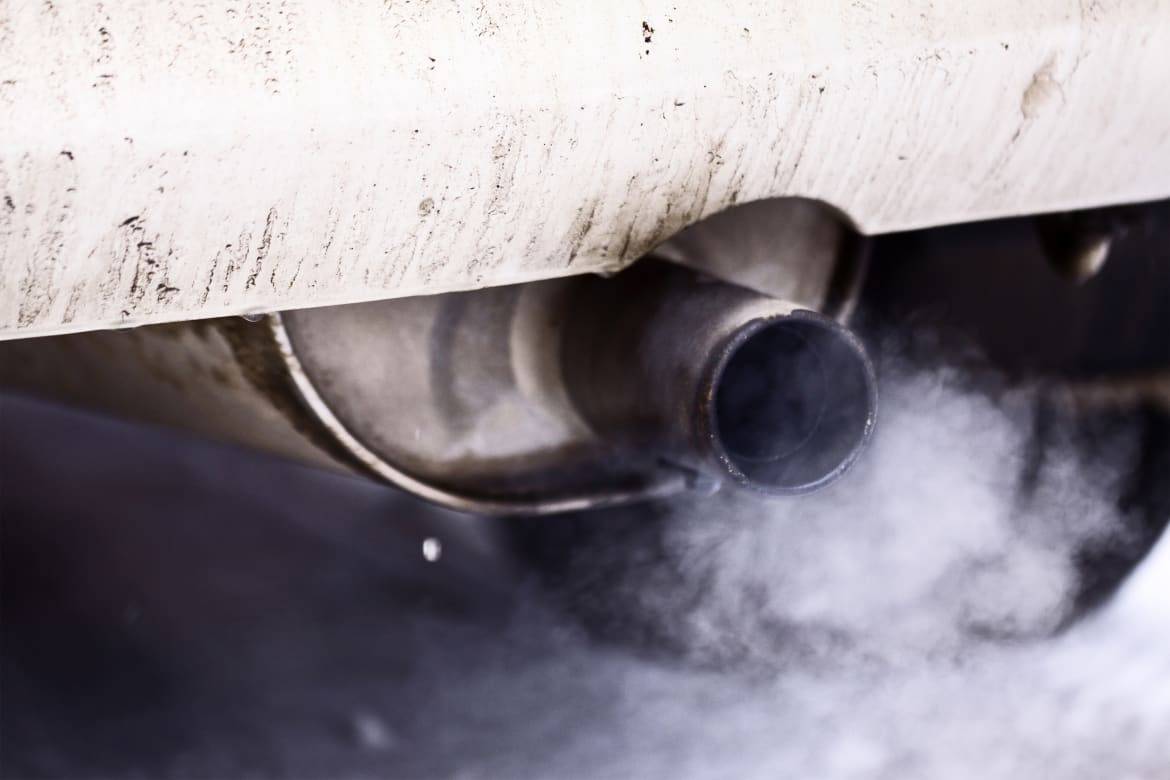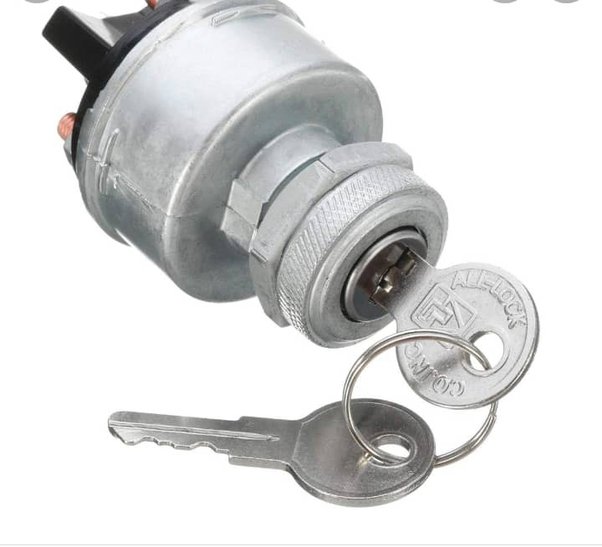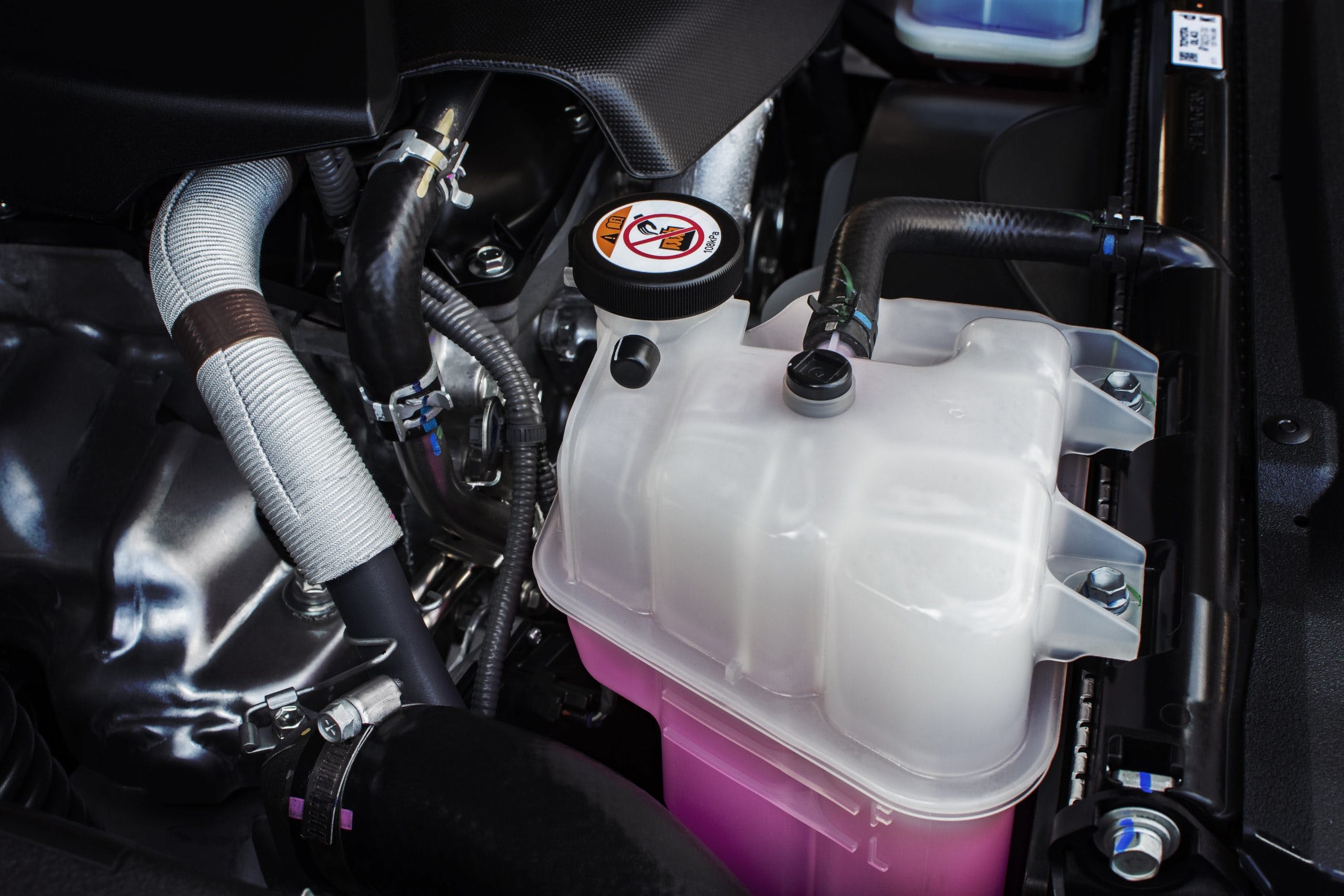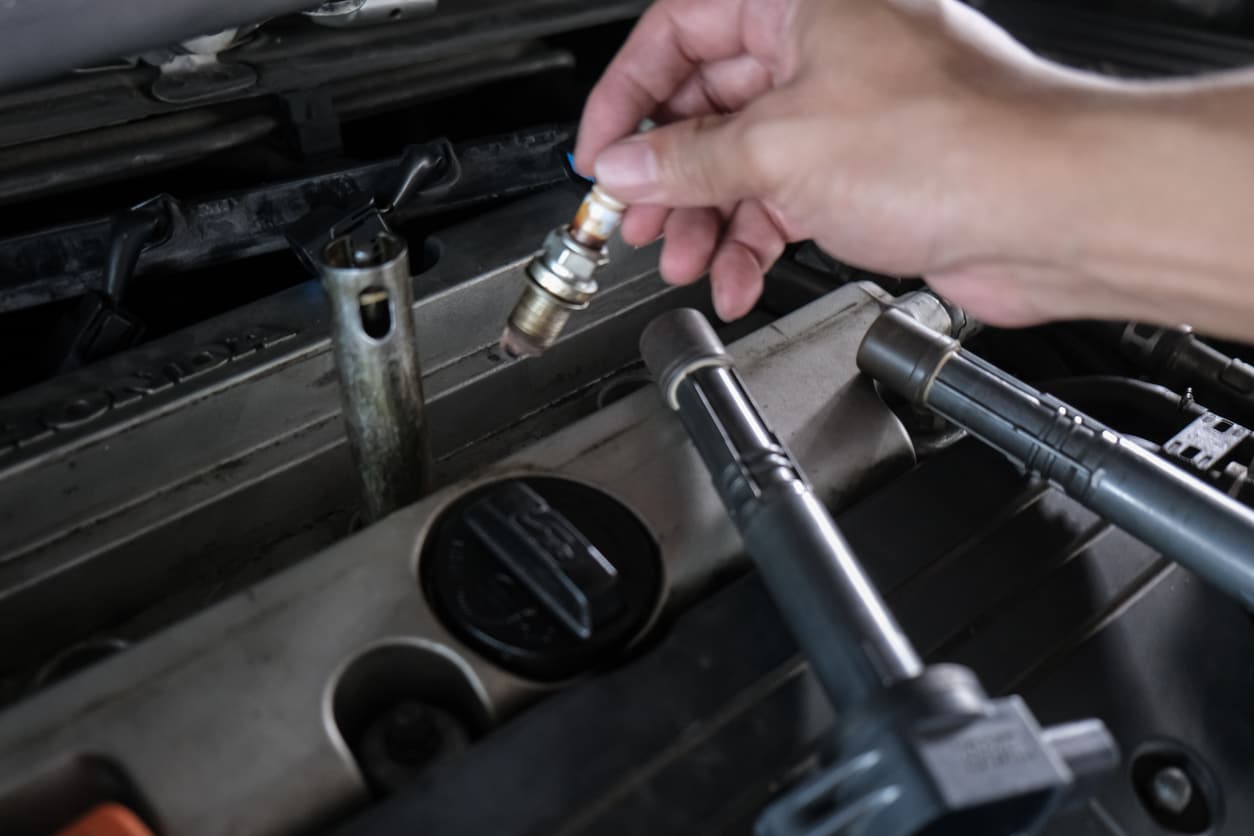Effects of a Leaking Exhaust Pipe
A leaking exhaust pipe can lead to reduced fuel efficiency and potential carbon monoxide exposure. It can also result in failed emissions tests and further damage to the vehicle’s engine and components.
The integrity of a vehicle’s exhaust system is crucial for its overall performance and for the safety of its occupants. A compromised exhaust pipe not only disrupts the engine’s optimal functioning by affecting the backpressure and exhaust flow but also poses serious health risks by possibly allowing harmful gases to seep into the car’s cabin.
Timely detection and repair of exhaust leaks are vital. Not addressing these issues promptly can escalate repair costs and impact the environment through increased emissions. Car owners must be alert to the symptoms of an exhaust leak, such as a louder-than-normal exhaust sound, a distinct odor of exhaust fumes, or a rattling noise when the vehicle is running. Proper maintenance and immediate attention to any irregularities in the exhaust system ensure the longevity of the vehicle and protect the health of its users.
Identifying A Leaking Exhaust Pipe
A leaking exhaust pipe might seem minor. Beware, it’s not! Recognizing a leak in your car’s exhaust system is crucial. It can lead to serious performance issues and health risks.
Common Signs And Symptoms
Be on the alert for these signs that indicate a possible exhaust leak:
- Louder engine noise, especially when accelerating.
- A hissing or popping sound coming from the exhaust.
- Decreased fuel efficiency, as leaks can affect how well your engine runs.
- A smell of gas inside the car, which is never a good sign.
- Your accelerator vibrates or feels different under your foot.
Potential Risks Of Ignoring It
Not fixing a leak can lead to:
| Issue | Effect |
|---|---|
| Performance problems | Less power and acceleration. |
| Health risks | Exposure to toxic gases. |
| Environmental impact | More pollutants released. |
| System damage | Other car parts may get damaged. |
Address leaks as soon as you spot them. Keep yourself, your car, and the planet safer!
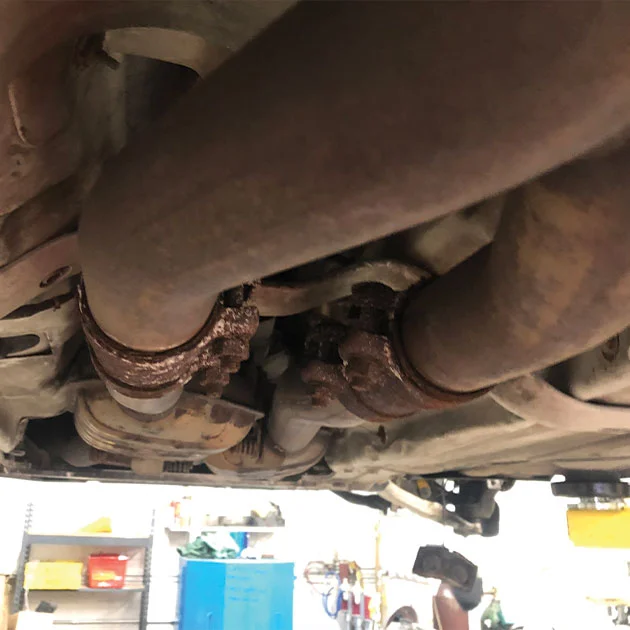
Credit: beckerservicecenter.com
Health Hazards Posed By Exhaust Leak
An exhaust leak might seem like a minor car issue. Yet, it poses serious health risks. The fumes escaping directly from a leak can seep into your car interior. This puts you and your passengers in danger. It’s crucial to know the health hazards of an exhaust leak.
Risk Of Carbon Monoxide Poisoning
Carbon monoxide is a colorless and odorless gas. A leaking exhaust system allows this gas to enter your car. Since it’s hard to detect, the risk of poisoning is very high.
- Headaches and dizziness are early signs of poisoning.
- Prolonged exposure can lead to loss of consciousness or even death.
It’s critical to fix leaks immediately to prevent poisoning.
Long-term Respiratory Problems
Constant exposure to exhaust fumes can harm your lungs. Breathe in these fumes every day, and your lungs will struggle.
| Exposure Time | Health Effect |
|---|---|
| Short-Term | Coughing and throat irritation |
| Long-Term | Chronic respiratory problems |
Safeguard your health by checking your car regularly for leaks.
Impact On Vehicle Performance
A leaking exhaust pipe can significantly impact how well your vehicle performs. It might seem like a small issue at first. But it can lead to bigger problems under the hood. Let’s explore what a leak in your exhaust system could mean for your car’s overall performance.
Decreased Fuel Efficiency
Have you noticed more trips to the gas station? A leak in the exhaust pipe could be the culprit. This issue causes your engine to work harder, using more fuel.
- Extra air enters through the leak, disrupting the engine’s balance.
- The engine compensates by burning more fuel.
Monitoring gas mileage helps detect efficiency drops early on.
Loss Of Engine Power
Your car’s get-up-and-go might get up and leave with an exhaust leak.
Symptoms include:
- Sluggish acceleration, especially on hills
- Your car feels less responsive overall
The engine loses power because the exhaust system’s pressure is key to its operation.

Credit: www.dubizzle.com
Environmental Concerns
Leaking exhaust pipes pose serious environmental risks. The harm stretches beyond the noise and the stains they leave on driveways. Below, we explore the more significant impacts.
Increased Emissions
A leak in the exhaust system means toxic gases escape. These gases should normally pass through a catalytic converter. This device reduces pollution.
- Carbon Monoxide (CO) – a colorless, odorless harmful gas.
- Nitrogen Oxides (NOx) – contribute to smog and acid rain.
- Hydrocarbons (HC) – unburned fuel that causes smog.
Faulty exhaust systems release these gases into the atmosphere. This can happen at higher levels than vehicles in good repair.
Contribution To Air Pollution
Air quality worsens with increased emissions. Let’s break down the effects.
| Pollutant | Environmental Impact |
|---|---|
| Carbon Monoxide (CO) | Affects oxygen delivery in the body |
| Nitrogen Oxides (NOx) | Contributes to ground-level ozone |
| Hydrocarbons (HC) | Involved in forming ground-level ozone and smog |
Smog not only obscures our view but harms human health. Exhaust leaks add to this problem daily.
Immediate action can make a difference. Repairing leaks minimizes harmful discharge. This keeps our air cleaner and safer for everyone.
Legal And Cost Implications
Legal and Cost Implications are crucial when addressing the effects of a leaking exhaust pipe. Ignoring this can lead to significant legal and financial headaches. Understanding these implications is essential for any vehicle owner.
Failure To Meet Emission Standards
Emission standards exist to protect the environment. A leaking exhaust can cause a vehicle to exceed these limits, leading to legal issues.
- Mandatory vehicle inspections require emissions within legal limits.
- Exceeding emission standards may result in a vehicle failing inspection.
- Driving a non-compliant vehicle can lead to sanctions.
Potential Fines And Repair Costs
| Consequence | Cost |
|---|---|
| Fines | Varies by location |
| Repair Costs | Depends on damage |
Fines differ by region but can be hefty. Non-compliance might attract penalties. Repair costs can escalate if issues are not addressed promptly. It’s best to fix leaks quickly to minimize expenses.

Credit: www.youtube.com
Frequently Asked Questions For Effects Of A Leaking Exhaust Pipe
Can A Leaking Exhaust Affect Engine Performance?
Absolutely. A leak in the exhaust system can lead to reduced engine efficiency. It can cause the engine to work harder, which may reduce overall performance and increase fuel consumption.
Is It Safe To Drive With An Exhaust Leak?
Driving with an exhaust leak is unsafe. It poses risks such as exposing passengers to harmful gases and potentially leading to engine damage. It’s best to get it fixed promptly.
What Are Signs Of A Leaking Exhaust Pipe?
Common signs include louder-than-usual exhaust noise, a distinct smell of exhaust fumes, reduced fuel efficiency, and a hanging or dragging exhaust pipe. If you notice these, get it checked.
How Does An Exhaust Leak Impact Fuel Economy?
An exhaust leak can negatively impact fuel economy. It disrupts the engine’s air-fuel ratio, causing the engine to use more fuel to maintain performance, thereby decreasing mileage.
Conclusion
Recognizing the signs of a leaking exhaust pipe is crucial. It safeguards both your vehicle’s performance and passenger health. Regular checks and timely repairs can prevent the cascade of complications discussed. Embrace maintenance to ensure your journey remains safe, efficient, and environmentally friendly.
Don’t hesitate—address exhaust leaks promptly.

